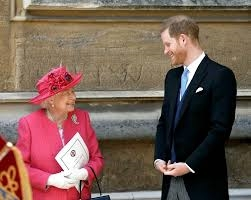19 September 2024
Tax Efficient Trust Structures for Succession Planning
Prince Harry's Financial Milestone and Its Legal Implications
Prince Harry on his 40th birthday on September 15, 2024 reportedly was entitled to receive a substantial financial benefit from a trust established by Queen Elizabeth II. The arrangement, which has recently garnered attention, underscores both the strategic estate planning undertaken by the royal family and the financial dynamics at play for its members.
The Trust Fund
In 1994, Queen Elizabeth II set up an English trust fund with a total value of £19 million, designated to be distributed among her grandchildren and great-grandchildren. This trust was intended to provide a financial legacy for her descendants while addressing potential tax implications. The trust stipulates that beneficiaries receive payments on their 21st and 40th birthdays.
Prince Harry is poised to receive £8 million from this trust upon turning 40, which marks a significant increase from the £6 million he, along with his brother Prince William, received on their 21st birthdays. This trust arrangement was designed to provide financial support while also addressing potential tax implications. By placing a portion of her estate in a trust, the Queen Mother effectively minimized inheritance tax liabilities and ensured a financial legacy for her descendants.
Trust Fund in the UK
A trust fund is a legal arrangement for managing assets—such as money, property, or investments—on behalf of others. Trusts involve the settlor, who creates the trust and contributes assets; the trustee, responsible for managing those assets; and the beneficiary, who benefits from the trust. Trusts serve various purposes, including asset protection, support for minors or incapacitated individuals, and estate planning.
There are several types of trusts, each with distinct characteristics and tax implications:
- Bare trusts: Trusts held in the name of the trustee. However, beneficiaries have the right to access assets once they reach a certain age.
- Interest in possession trusts: Trustees must pass on all income to beneficiaries as it arises.
- Discretionary trusts: Trustees have the authority to decide how and when to distribute income and capital among beneficiaries.
- Accumulation trusts: Income can be accumulated within the trust and added to the capital by trustees.
- Mixed trusts: These combine elements of different trust types, each subject to its own tax rules.
- Settlor-interested trusts: The settlor or their partner can also benefit from the trust.
- Non-resident trusts: Established by trustees outside the UK, subject to complex tax regulations.
- Irrevocable trusts: This type of Trust move the assets from the grantor's control and name to that of the beneficiary. This reduces the value of the grantor's estate in regard to estate taxes and protects the assets from creditors.
Trust funds are often used to ensure assets are managed according to the settlor’s wishes while providing tax efficiency and protection for beneficiaries.
Discrepancies in Beneficiary Amounts
In the UK, inheritance tax can take a substantial portion of an estate, typically up to 40% on amounts exceeding the tax-free threshold. Trusts are a common tool used to mitigate these taxes, allowing for the controlled distribution of assets while minimizing the overall tax burden.
If a trust is established within 7 years before an individual’s death, it could be subject to Inheritance Tax (IHT). However, since the Queen set up the trust in 1994 and died in 2002, this trust falls outside the 7-year window and is therefore not liable for IHT. The arrangement allowed for the transfer of wealth across generations in a tax-efficient way.
A former Palace aide clarified to a well-known newspapaer publisher that the trust was a strategic move by the Queen Mother to pass on a portion of her estate in a tax-efficient manner. The trust served as a method to ring-fence assets for her great-grandchildren, thereby minimizing inheritance tax liabilities and ensuring a financial legacy for future generations.
There you go, are you ready to know more about how you can protect your wealth from taxable event and pass on to your children and grandchildren? Get in touch with Arunoday Ganguly (arunoday@cygalattorneys.com) from Cygal Attorneys Ltd and Dhana Pillai (dhana.pillai@dptc.ae) from DP Taxation Consultancy today!!




